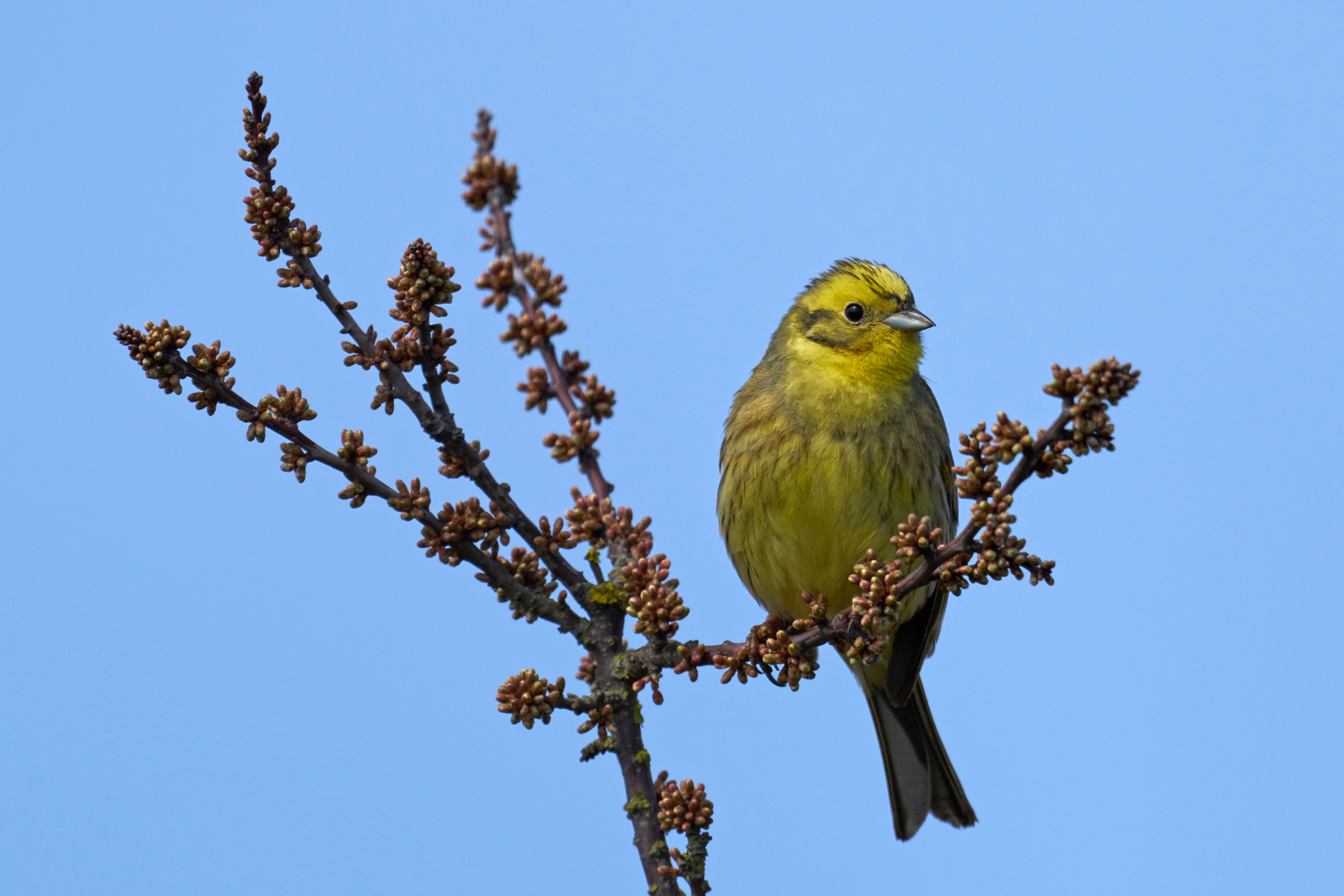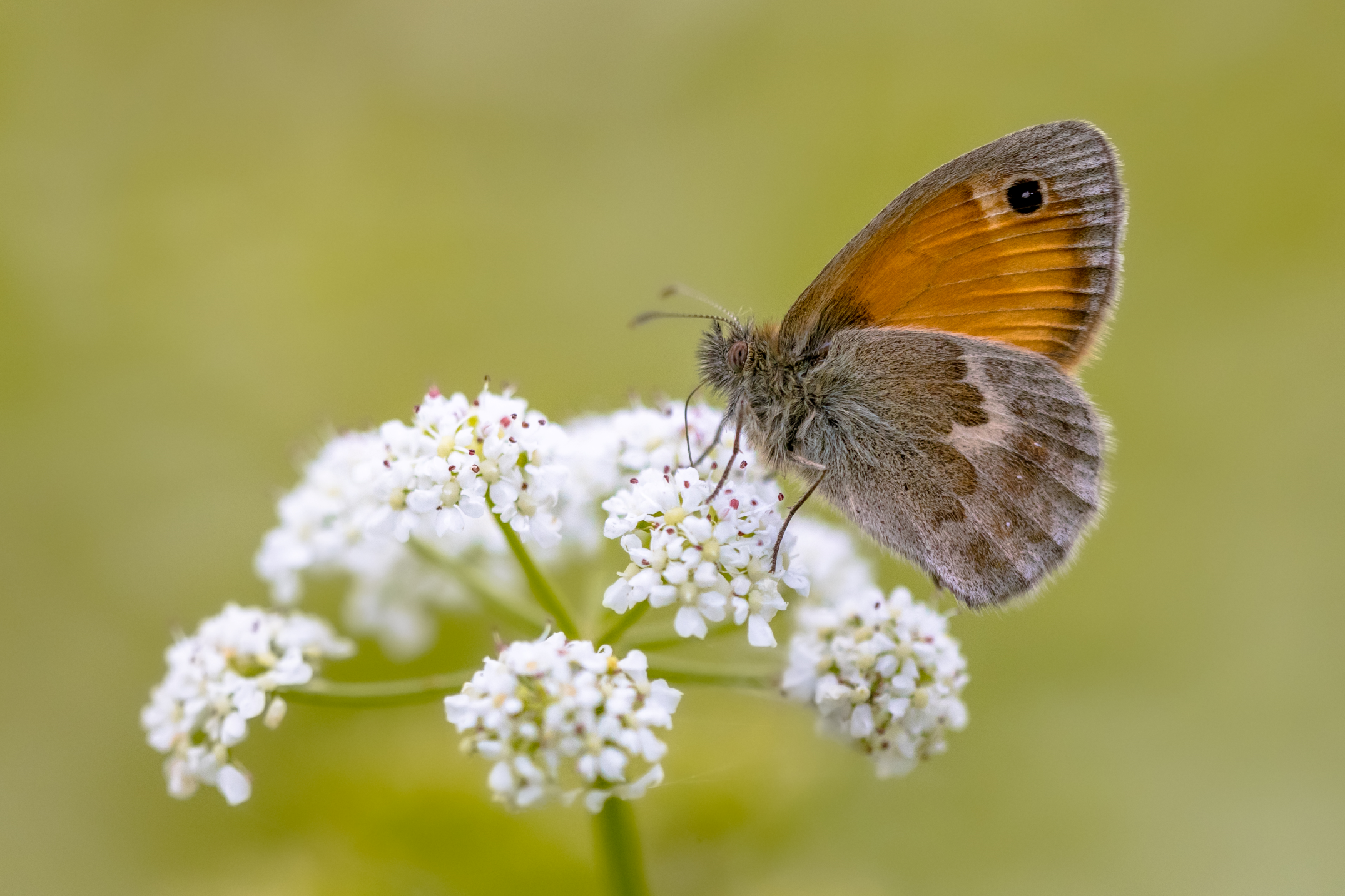Birds, butterflies and biodiversity

Biodiversity is essential for the processes that support all life on Earth. Without a wide range of animals, plants and microorganisms, we cannot have the healthy ecosystems that we rely on to provide us with the air we breathe and the food we eat. Through our portfolio of renewable energy assets, we have a duty of care to the land our energy-generation assets inhabit, as well as the surrounding flora and fauna.

We have made an active commitment to perform an ongoing programme of ecological site surveys to identify, refine and optimise our contribution to target 15 of the UN Sustainable Development Goals (Life on Land).
Below, we outline the findings from the ecological survey that was performed on our Andover Airfield solar site and how the results inform our biodiversity enhancement project plan - highlighting species of interest that require extra attention.
Species observed at Andover Airfield
Andover Airfield is a 4.3 MWp ground-mounted solar site in Andover, UK and is annually estimated to power the equivalent of 1,429 UK homes. The site covers 44 acres, predominantly made up of grassland. Throughout our ownership, several important animal species have been observed on-site, such as the Yellowhammer and Meadow Pipit which the RSPB has red-listed and amber-listed respectively. The Meadow Pipit is amber-listed due to its decline since the 1970s. The Yellowhammer is on the red list because the breeding population has declined by 50% in the past 25 years. We are currently in the process of erecting bird boxes to help protect birds across the portfolio.
The Small Heath butterfly was also seen on the site which is a Species of Principal Importance for the conservation of biodiversity in England under the Natural Environment and Rural Communities (NERC) Act - an act which requires public authorities to have a significant regard for conserving biodiversity.
The biodiversity assessment pointed to a number of opportunities to improve the grassland and hedgerow habitats at the site, which would benefit the Small Heath Butterfly. Since their diet pre- and post-transition from caterpillars mainly consists of different varieties of grass species and floral nectar, this will prove crucial for their conservation.
Improving the grassland and hedgerows on the sites will also benefit the birds in the area, as many of the local birds live off insects, whose numbers would increase if the condition of the grassland was improved.
What’s next?
A five-year plan will be introduced focusing on enhancing the habitats on our solar sites. The portfolio mainly manages grasslands, so many of the improvements are focused on that habitat, with initiatives including mainly planting and slight changes in management. In the first year, we will be focusing on a substantial roll out of installations which support local wildlife: bird boxes, mouse boxes, bat boxes, beehives and hibernaculas (shelters occupied by dormant animals during the winter).
To find out more about our approach to biodiversity, please click here. Or if you would like to view how DORE is supporting wildlife, please click here
Biodiversity is essential for the processes that support all life on Earth. Without a wide range of animals, plants and microorganisms, we cannot have the healthy ecosystems that we rely on to provide us with the air we breathe and the food we eat. Through our portfolio of renewable energy assets, we have a duty of care to the land our energy-generation assets inhabit, as well as the surrounding flora and fauna.

We have made an active commitment to perform an ongoing programme of ecological site surveys to identify, refine and optimise our contribution to target 15 of the UN Sustainable Development Goals (Life on Land).
Below, we outline the findings from the ecological survey that was performed on our Andover Airfield solar site and how the results inform our biodiversity enhancement project plan - highlighting species of interest that require extra attention.
Species observed at Andover Airfield
Andover Airfield is a 4.3 MWp ground-mounted solar site in Andover, UK and is annually estimated to power the equivalent of 1,429 UK homes. The site covers 44 acres, predominantly made up of grassland. Throughout our ownership, several important animal species have been observed on-site, such as the Yellowhammer and Meadow Pipit which the RSPB has red-listed and amber-listed respectively. The Meadow Pipit is amber-listed due to its decline since the 1970s. The Yellowhammer is on the red list because the breeding population has declined by 50% in the past 25 years. We are currently in the process of erecting bird boxes to help protect birds across the portfolio.
The Small Heath butterfly was also seen on the site which is a Species of Principal Importance for the conservation of biodiversity in England under the Natural Environment and Rural Communities (NERC) Act - an act which requires public authorities to have a significant regard for conserving biodiversity.
The biodiversity assessment pointed to a number of opportunities to improve the grassland and hedgerow habitats at the site, which would benefit the Small Heath Butterfly. Since their diet pre- and post-transition from caterpillars mainly consists of different varieties of grass species and floral nectar, this will prove crucial for their conservation.
Improving the grassland and hedgerows on the sites will also benefit the birds in the area, as many of the local birds live off insects, whose numbers would increase if the condition of the grassland was improved.
What’s next?
A five-year plan will be introduced focusing on enhancing the habitats on our solar sites. The portfolio mainly manages grasslands, so many of the improvements are focused on that habitat, with initiatives including mainly planting and slight changes in management. In the first year, we will be focusing on a substantial roll out of installations which support local wildlife: bird boxes, mouse boxes, bat boxes, beehives and hibernaculas (shelters occupied by dormant animals during the winter).
To find out more about our approach to biodiversity, please click here. Or if you would like to view how DORE is supporting wildlife, please click here
Biodiversity is essential for the processes that support all life on Earth. Without a wide range of animals, plants and microorganisms, we cannot have the healthy ecosystems that we rely on to provide us with the air we breathe and the food we eat. Through our portfolio of renewable energy assets, we have a duty of care to the land our energy-generation assets inhabit, as well as the surrounding flora and fauna.

We have made an active commitment to perform an ongoing programme of ecological site surveys to identify, refine and optimise our contribution to target 15 of the UN Sustainable Development Goals (Life on Land).
Below, we outline the findings from the ecological survey that was performed on our Andover Airfield solar site and how the results inform our biodiversity enhancement project plan - highlighting species of interest that require extra attention.
Species observed at Andover Airfield
Andover Airfield is a 4.3 MWp ground-mounted solar site in Andover, UK and is annually estimated to power the equivalent of 1,429 UK homes. The site covers 44 acres, predominantly made up of grassland. Throughout our ownership, several important animal species have been observed on-site, such as the Yellowhammer and Meadow Pipit which the RSPB has red-listed and amber-listed respectively. The Meadow Pipit is amber-listed due to its decline since the 1970s. The Yellowhammer is on the red list because the breeding population has declined by 50% in the past 25 years. We are currently in the process of erecting bird boxes to help protect birds across the portfolio.
The Small Heath butterfly was also seen on the site which is a Species of Principal Importance for the conservation of biodiversity in England under the Natural Environment and Rural Communities (NERC) Act - an act which requires public authorities to have a significant regard for conserving biodiversity.
The biodiversity assessment pointed to a number of opportunities to improve the grassland and hedgerow habitats at the site, which would benefit the Small Heath Butterfly. Since their diet pre- and post-transition from caterpillars mainly consists of different varieties of grass species and floral nectar, this will prove crucial for their conservation.
Improving the grassland and hedgerows on the sites will also benefit the birds in the area, as many of the local birds live off insects, whose numbers would increase if the condition of the grassland was improved.
What’s next?
A five-year plan will be introduced focusing on enhancing the habitats on our solar sites. The portfolio mainly manages grasslands, so many of the improvements are focused on that habitat, with initiatives including mainly planting and slight changes in management. In the first year, we will be focusing on a substantial roll out of installations which support local wildlife: bird boxes, mouse boxes, bat boxes, beehives and hibernaculas (shelters occupied by dormant animals during the winter).
To find out more about our approach to biodiversity, please click here. Or if you would like to view how DORE is supporting wildlife, please click here
Biodiversity is essential for the processes that support all life on Earth. Without a wide range of animals, plants and microorganisms, we cannot have the healthy ecosystems that we rely on to provide us with the air we breathe and the food we eat. Through our portfolio of renewable energy assets, we have a duty of care to the land our energy-generation assets inhabit, as well as the surrounding flora and fauna.

We have made an active commitment to perform an ongoing programme of ecological site surveys to identify, refine and optimise our contribution to target 15 of the UN Sustainable Development Goals (Life on Land).
Below, we outline the findings from the ecological survey that was performed on our Andover Airfield solar site and how the results inform our biodiversity enhancement project plan - highlighting species of interest that require extra attention.
Species observed at Andover Airfield
Andover Airfield is a 4.3 MWp ground-mounted solar site in Andover, UK and is annually estimated to power the equivalent of 1,429 UK homes. The site covers 44 acres, predominantly made up of grassland. Throughout our ownership, several important animal species have been observed on-site, such as the Yellowhammer and Meadow Pipit which the RSPB has red-listed and amber-listed respectively. The Meadow Pipit is amber-listed due to its decline since the 1970s. The Yellowhammer is on the red list because the breeding population has declined by 50% in the past 25 years. We are currently in the process of erecting bird boxes to help protect birds across the portfolio.
The Small Heath butterfly was also seen on the site which is a Species of Principal Importance for the conservation of biodiversity in England under the Natural Environment and Rural Communities (NERC) Act - an act which requires public authorities to have a significant regard for conserving biodiversity.
The biodiversity assessment pointed to a number of opportunities to improve the grassland and hedgerow habitats at the site, which would benefit the Small Heath Butterfly. Since their diet pre- and post-transition from caterpillars mainly consists of different varieties of grass species and floral nectar, this will prove crucial for their conservation.
Improving the grassland and hedgerows on the sites will also benefit the birds in the area, as many of the local birds live off insects, whose numbers would increase if the condition of the grassland was improved.
What’s next?
A five-year plan will be introduced focusing on enhancing the habitats on our solar sites. The portfolio mainly manages grasslands, so many of the improvements are focused on that habitat, with initiatives including mainly planting and slight changes in management. In the first year, we will be focusing on a substantial roll out of installations which support local wildlife: bird boxes, mouse boxes, bat boxes, beehives and hibernaculas (shelters occupied by dormant animals during the winter).
To find out more about our approach to biodiversity, please click here. Or if you would like to view how DORE is supporting wildlife, please click here

Please fill out the form to download the full report
Downing LLP does not provide advice or make personal recommendations and investors are strongly urged to seek independent advice before investing. Investments offered on this website carry a higher risk than many other types of investment and prospective investors should be aware that capital is at risk and the value of their investment may go down as well as up. Any investment should only be made on the basis of the relevant product literature and your attention is drawn to the risk, fees and taxation factors contained therein. Tax treatment depends on individual circumstances of each investor and may be subject to change in the future. Past performance is not a reliable indicator of future performance. Downing LLP is authorised and regulated by the Financial Conduct Authority (Firm Reference Number 545025). Registered in England No. OC341575. Registered Office: Downing, 10 Lower Thames Street, London, EC3R 6AF.










